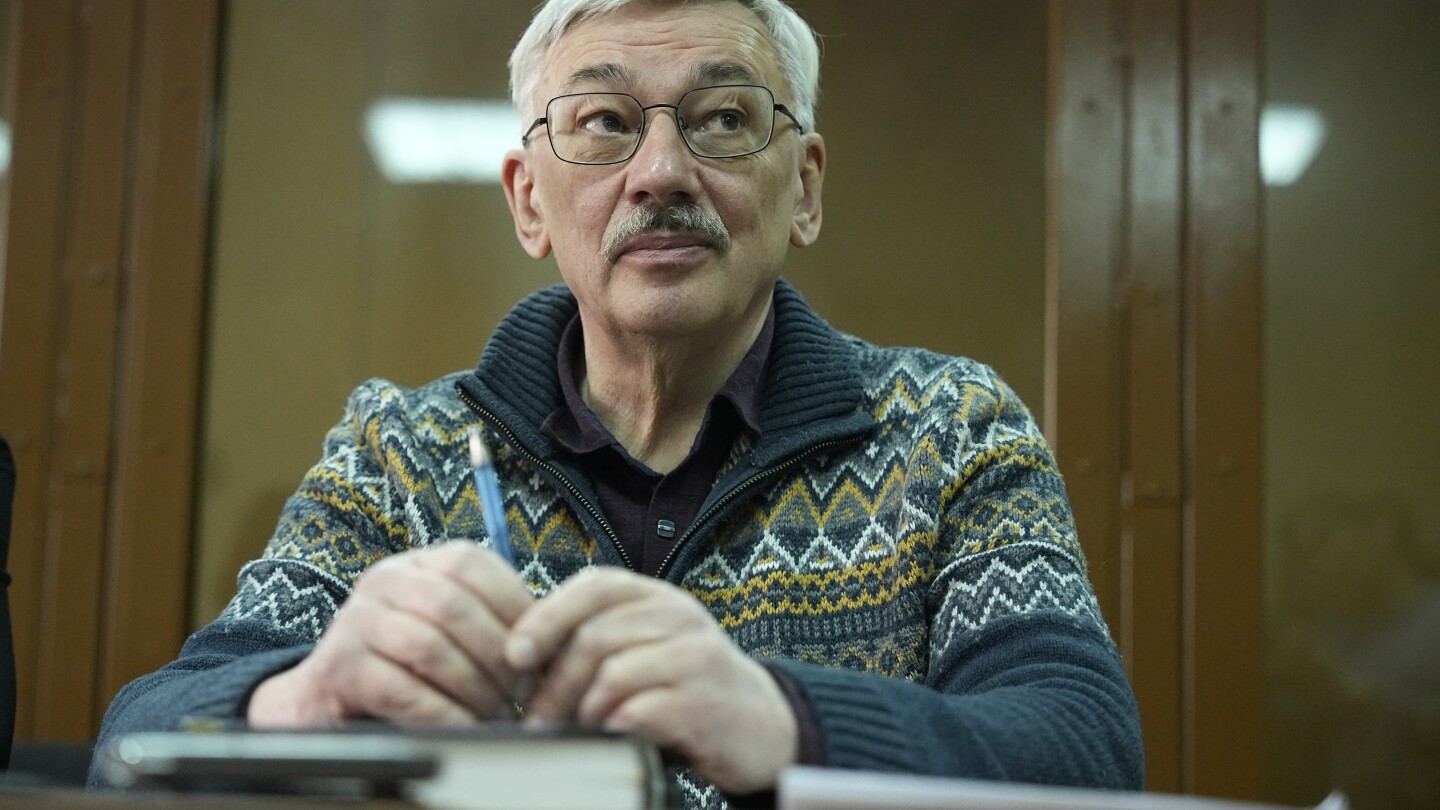Russian authorities on Monday sought a prison sentence of nearly three years for a veteran human rights advocate who spoke out against the war in Ukraine.
The prosecution demanded that Oleg Orlov, 70, be convicted of “repeatedly discrediting” the Russian army and sentenced to two years and 11 months in prison. The demand came in a retrial after he was earlier ordered to pay a fine. Underscoring how little tolerance President Vladimir Putin’s government has for criticism of its invasion of Ukraine, the prosecution appealed the fine, seeking a harsher punishment.
The charges against Orlov, co-chairman of the Nobel Peace Prize-winning human rights group Memorial, came after he posted on Facebook an article he wrote denouncing the invasion of Ukraine. He has rejected the case against him as politically motivated.
A court in Moscow in October 2023 delivered a guilty verdict and fined Orlov 150,000 rubles (about $1,500 at the time), a significantly milder punishment compared to the lengthy prison terms some other Russians have received for criticizing the war.
Both the defense and the prosecution appealed the verdict, and a higher court voided the fine and sent the case back to the prosecutors. A new trial began earlier this month, another step in a yearslong, unrelenting crackdown on dissent in Russia that the Kremlin ratcheted up after sending troops into Ukraine in February 2022.
Monday’s hearing drew over 100 supporters of Orlov and more than a dozen Western diplomats, Russian independent news site Mediazona reported. Orlov brought a book to the hearing — “The Trial” by Franz Kafka — reflecting his view of the trial as absurd. At a hearing on Thursday, Orlov read the novel and refused to engage in the proceedings.
In his closing statement to the court on Monday, he once again denounced the war in Ukraine. “I don’t regret anything and I don’t repent anything,” he said.
Speaking to “those who are now moving the steamroller of repression forward with their work … government officials, law enforcement officers, judges, prosecutors,” Orlov wondered if they were “scared themselves” of “what our country, which you probably love too, is turning into” — “this absurdity, in this dystopia.”
“Doesn’t the obvious come to mind — that the steamroller of repression may sooner or later roll over those who launched it and pushed it? This has happened many times in history,” he said.
The court is to deliver the verdict in the trial on Tuesday morning.

